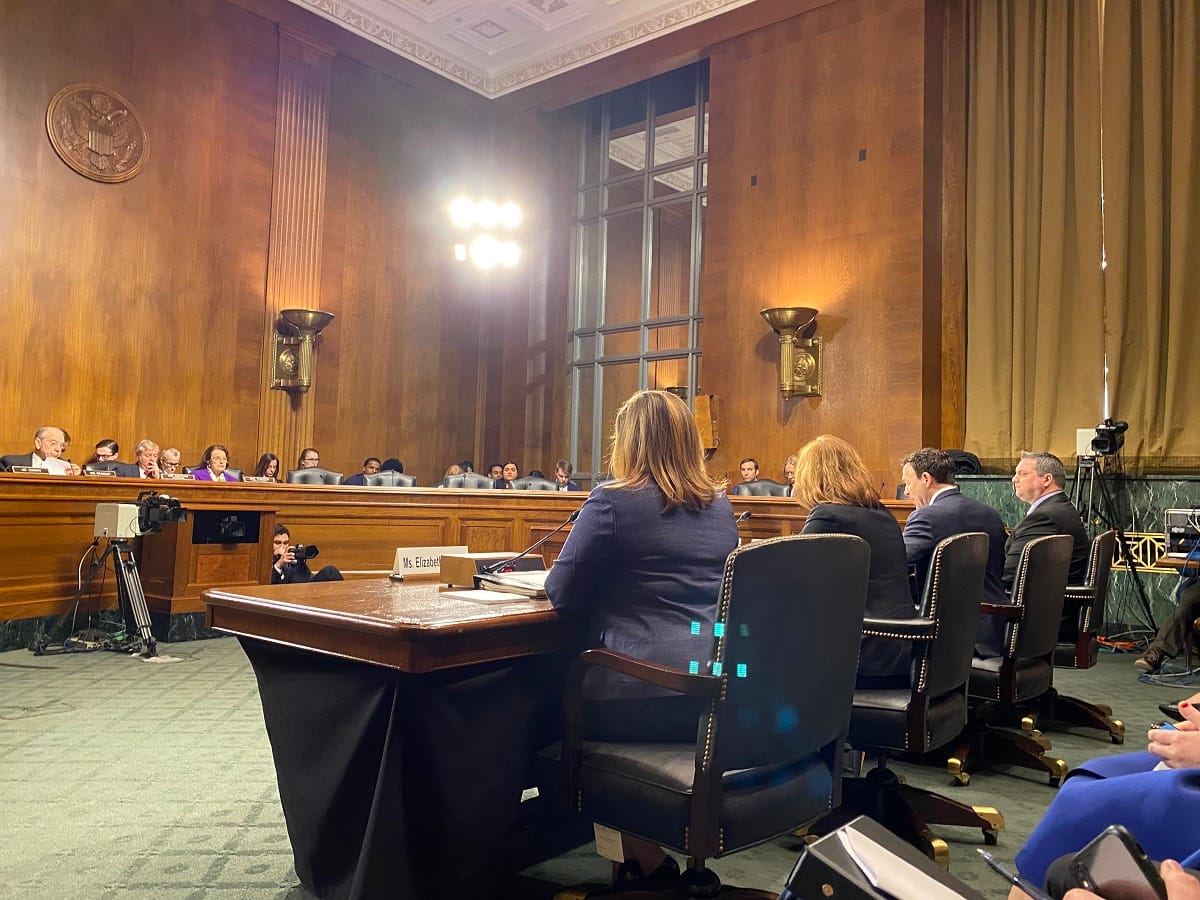Big Tech Must Combat Child Sexual Abuse Material Online or Lose Section 230 Protection, Say Senators
WASHINGTON, March 12, 2020 – Cracks in the edifice of Section 230 of the Communications Decency Act continued to expand at a Wednesday Senate Judiciary Committee hearing. Senators confronted tech platform companies with an ultimatum: Fight against child pornography or forfeit Section 230 protections
Adrienne Patton

WASHINGTON, March 12, 2020 – Cracks in the edifice of Section 230 of the Communications Decency Act continued to expand at a Wednesday Senate Judiciary Committee hearing.
Senators confronted tech platform companies with an ultimatum: Fight against child pornography or forfeit Section 230 protections.
The bill the committee discussed is called the EARN IT Act, which would require tech companies to follow specific practices to prevent what the bill’s authors are terming “child sexual abuse material.”
Absent such measures, the tech companies would lose legal protections. Under Section 230, tech platforms are shielded from litigation over users’ actions or statements, but does such immunity does not apply to the platform’s user, who can be held accountable for his or her actions.
Therefore, in theory, the EARN IT Act would prompt tech companies to actively do more to report and fight against child pornography.
Sen. Lindsey Graham R-S.C., said Section 230 has served to help the internet in its beginning stages, and “now it is time for us as a nation to figure out about how to reign in some of the problems associated with these industries,” said Graham.
“Section 230 has failed,” Graham declared. He said it does not “incentivize” companies to actively combat CSAM online.
Graham admitted that “Facebook is doing a damn good job of finding out sexual abuse on their platform.” However, while Facebook reported 15.8 million cases of child pornography to the National Center for Missing and Exploited Children in 2019, Amazon only reported eight.
A woman named Nicole, whose last name was undisclosed, shared the harrowing details of how her daughter’s abuse at the hands of her biological father spread across the internet.
“My initial reaction was relief that the images would prove what he had done and would help prosecute him,” said Nicole. However, “my child’s abuse continued to be redistributed online,” stated Nicole.
Nicole said that “at one point these images were the most highly traded in world.”
Internet Association Deputy General Counsel Elizabeth Banker sat in the hot seat as multiple senators fired questions at her association’s members, the biggest tech companies like Amazon and Facebook.
Banker wrote in her hearing statement that one of the concerns Internet Association has with the EARN IT Act are the “Fourth Amendment challenges.”
The Fourth Amendment protects against “unreasonable searches and seizures.” Banker stated concerns that criminal defendants might be able to avoid conviction based on Fourth Amendment accusations.
For example, Banker wrote in her statement that “the argument that many of these criminal defendants make is that providers, including her member companies, who proactively detect child sexual material and who report it to NCMEC’s CyberTipline, act as “agents of the government” for Fourth Amendment purposes.”
Banker also shared concerns about encryption regulation, which Sen. Richard Blumenthal, D-Conn, addressed in his opening statements. Blumenthal said that the EARN IT Act does not seek to prohibit or meddle with encryption.
“Strong law enforcement is compatible with strong encryption. I believe it; Big tech knows it,” said Blumenthal.
Banker said member companies would approve of “the development of new tools for detection, improving the quality and consistency of cyber tips, and assisting law enforcement investigative efforts.”
In response to Banker’s concerns, Graham said, “I don’t buy anything you just said about the tech companies and the internet ecosystem really caring.”
Blumenthal said Section 230 is not a “gift,” and companies have to deserve its protections.
Match Group Chief Legal Officer Jared Sine was commended several times throughout the hearing for the tech company’s support of the EARN IT Act and some of its proactive business practices. The Match Group owns several online dating websites around the world.
The Match Group created a panic button on its programs for women on dates to summon emergency responders in dangerous situations.
“The tech companies, big or small, can be part of the solution or they will be part of them problem, and they will lose all Section 230 protection,” said Blumenthal.








Member discussion